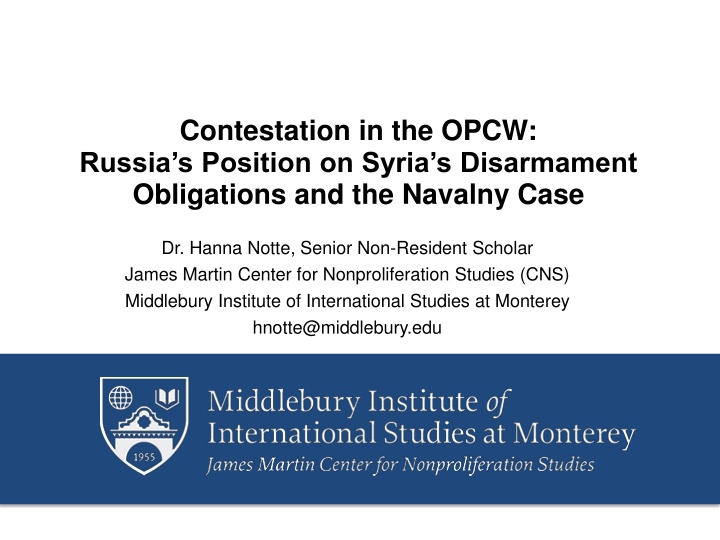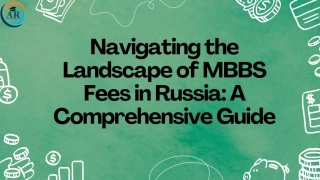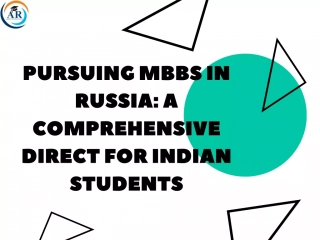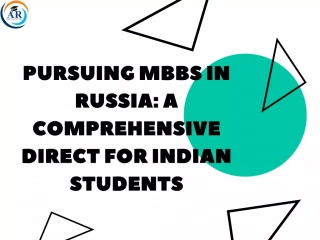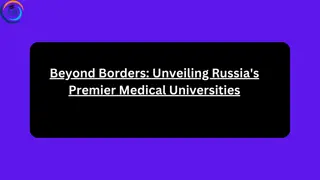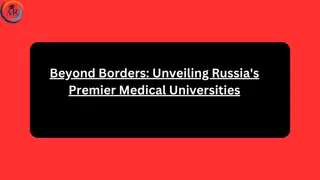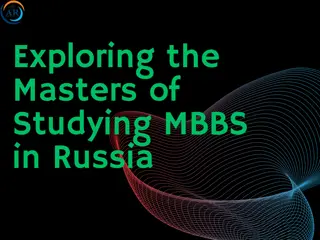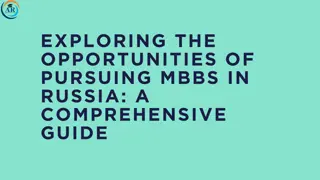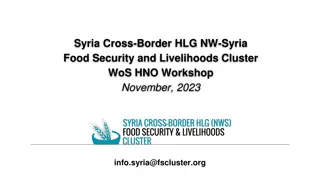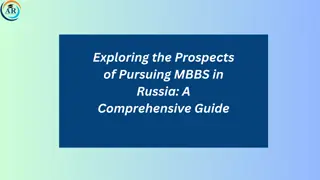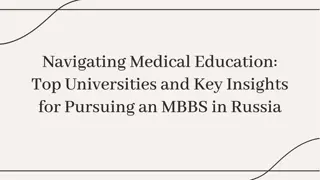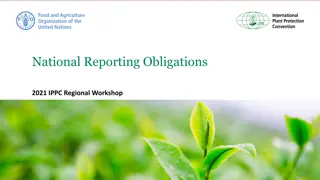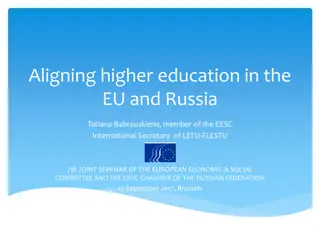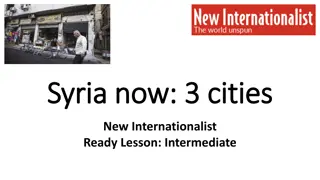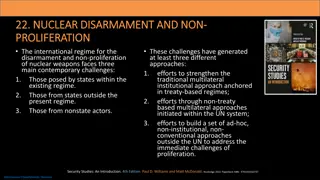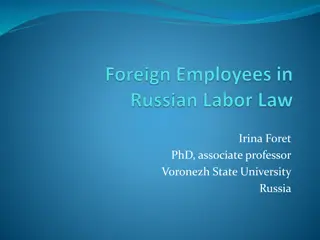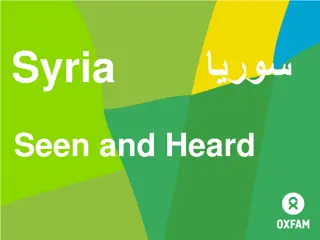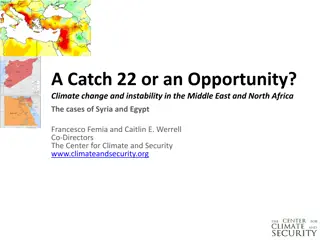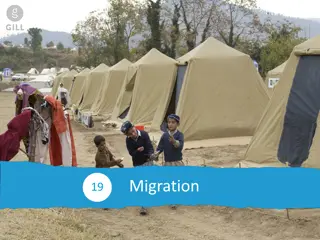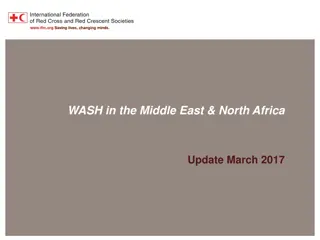Contestation in the OPCW: Russia's Position on Syria's Disarmament Obligations
Russia's stance on Syria's disarmament obligations and the Navalny case analyzed by Dr. Hanna Notte, a Senior Non-Resident Scholar at James Martin Center for Nonproliferation Studies. The discussion covers Russian cooperation with Syria in CW disarmament, questions over the accuracy of Syria's declarations post-2014, Russian lines of argumentation, political motivations, and more.
Download Presentation

Please find below an Image/Link to download the presentation.
The content on the website is provided AS IS for your information and personal use only. It may not be sold, licensed, or shared on other websites without obtaining consent from the author.If you encounter any issues during the download, it is possible that the publisher has removed the file from their server.
You are allowed to download the files provided on this website for personal or commercial use, subject to the condition that they are used lawfully. All files are the property of their respective owners.
The content on the website is provided AS IS for your information and personal use only. It may not be sold, licensed, or shared on other websites without obtaining consent from the author.
E N D
Presentation Transcript
Contestation in the OPCW: Russia s Position on Syria s Disarmament Obligations and the Navalny Case Dr. Hanna Notte, Senior Non-Resident Scholar James Martin Center for Nonproliferation Studies (CNS) Middlebury Institute of International Studies at Monterey hnotte@middlebury.edu
Syria, 2013-14: Russian cooperation in CW disarmament 1. The role of leverage / coercion ( red line ). 2. The legacy of the CTR (Cooperative Threat Reduction) partnership and US-Russian technical NSC-RSC exchanges. 3. Interest alignment for Russia: the importance of a hybrid disarmament framework. 4. Senior level political will and modest Russian expectations of spill-over into US-Russian bilateral relations. The Russians delivered the Syrians.
Syria from 2014: Contestation in the OPCW 1. Questions over the accuracy and completeness of Syria s declarations. --> The Declaration Assessment Team (DAT) 2. Questions over the pursuit of attribution for continued CW use. --> Fact-Finding Mission (FFM), April 2014 --> Joint Investigative Mechanism (JIM), August 2015 --> Investigation and Identification Team (IIT), June 2018
Syria from 2014: Russian lines of argumentation 1. Questions over the accuracy and completeness of Syria s declarations. Compliance with CWC routinely work-in-progress (see other states); CWC Verification Annex silent on completeness of declarations; Obsession with outstanding Syrian declaration issues overblown and politically motivated (need for goodwill to remove in limbo issues from agenda with Syria). 2. Questions over the pursuit of attribution for continued CW use. FFM and JIM: Violation of OPCW procedures (collection of evidence, chain of custody, selection of eyewitnesses etc). IIT: (1) Majority decision at CSP (2018) violated principle of consensus. (2) Mandate illegal: Decision = unlawful amendment of the CWC. (3) IIT illegitimate, since based on flawed FFM investigations.
Syria from 2014: Russian political motivations 1. Russia s changing stakes in Syria from September 2015 (from 2017: Rehabilitation, Reconstruction, Refugee Return). In this context, ongoing accusations of Syrian government CW use are anathema to overall Russian strategy. 2. Russia s perception of US / Western disengagement from Syria (punitive airstrikes in April 2017 and April 2018 insufficient to restore deterrence). 3. Russia s deepening crisis with the West; calls for a neo- isolationist foreign policy and situational alliances . Bottom line: Cost-benefit calculations mitigate against change of course; Defiance.
Syria at the OPCW today 1. Continued Russian rejection of IIT (and decisions flowing from it); DAT efforts essentially stalled. 2. Russia seeks to create formal obstacles for adoption of procedural sanctions against Syria at upcoming CSP (controversy over Russia filing separate agenda item at EC 96thsession; attacks on DG fielding questions at the UNSC). 3. Efforts at pursuing accountability for CW use in Syria will likely further widen the rift with Russia (eg IIT transfers of material to the IIIM as per Para. 12 of decision C-SS- 4/DEC.3, June 2018).
The Navalny case: Russian lines of argumentation 1. Not an issue for the OPCW : Navalny as a matter for Russian domestic criminal investigation. 2. There is a feeling of framing : Germany should have sought discreet bilateral consultations before multilateralising the issue. 3. It s no longer a one-way street case (Lavrov): Internal Russian investigation (as per Art. VII CWC) is being held up by German / OPCW reluctance to share information. 1. Toxic substances CW stockpile : Implying existence of non-declared CW production facilities and stockpiles on the basis of the Navalny incident is technically incorrect. [See CWC provisions on verification of small-scale facilities, on synthesis of Schedule 1 chemicals]
The Navalny case: Ways forward? 1. OPCW technical assistance visit: no agreement reached yet [see DG remarks at EC 96thsession]. 2. Available avenues within CWC: German bilateral request to Russia for clarification (Art. IX, para 2); challenge inspection (?); raising issue of Russian compliance in the EC (Art. IX, para 3 ff.) (?). 3. Calls for sanctioning Russia within the scope of the CWC (challenge inspections, procedural sanctions at CSP/withdrawing of voting rights) and outside (March 2 US sanctions leveraged: 1991 CBW Act, CAATSA, Exec Order 13382, Exec Order 13661) More to come? Bottom line: Russia is being asked to admit to violating the CWC and / or to violate its own domestic laws. Given the broader geopolitical context, its own cost-benefit calculations will (again) mitigate against taking that course of action.
